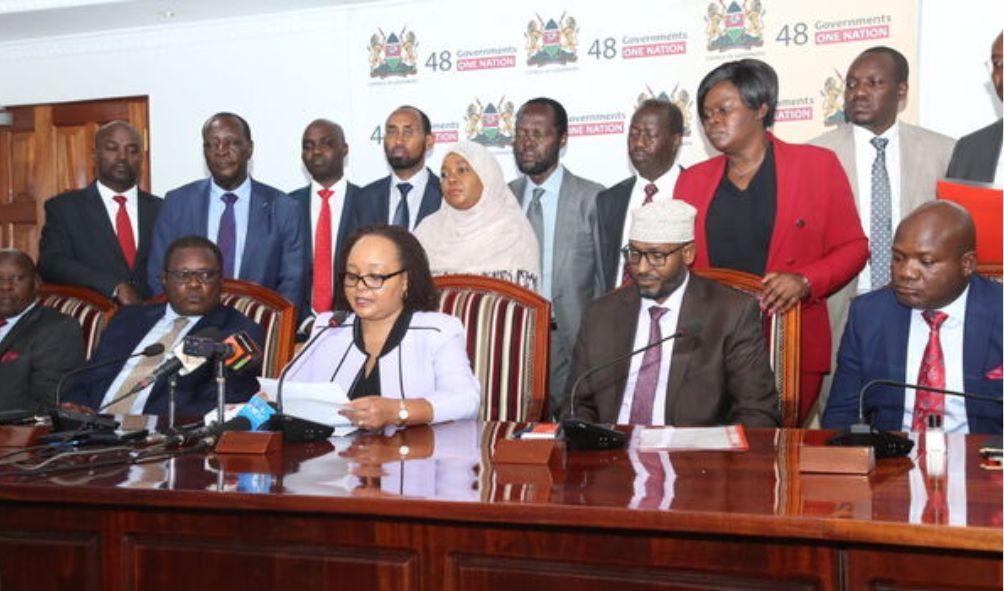Governors Advocate for Stricter Impeachment Laws to Prevent Abuse and Witch-Hunts
Governors have renewed discussions on the impeachment threshold, urging the Senate to endorse and enforce stricter regulations.
They argue that the County Governments Act, of 2012, leaves room for potential misuse and politically motivated actions.
The Council of Governors warns that the impeachment process could be exploited to undermine county leaders.
ALSO READ:
- Under and Over 7 — when the rules are simple, but the emotions are intense
- CAF Trophy Hunt: Win iPhone, MacBook, PlayStation, and other prizes in 1xBet promo!
- Rigathi Gachagua Responds to Raila Odinga’s Claim That He Can’t Fix Kenya’s Problems
- Miguna Miguna Criticizes New IEBC Chair Erastus Ethekon, Calls Him a Ruto Ally- ‘Not Independent’
- Matiang’i: No Scores to Settle, I Just Want to Fix My Country
“Let’s clarify the impeachment threshold. We need specific criteria for impeachment,” stated Council Chairperson Anne Waiguru at a Senate retreat in Eldoret.
Waiguru, who faced impeachment as Kirinyaga governor in 2020, emphasized that a well-defined law would outline what offenses warrant the removal of a county leader and the proper procedure for such actions.
She pointed out that it is currently harder to recall an elected MP than to impeach a governor.
Office Misuse
“We hope the Senate addresses this issue to prevent problems in inter-governmental relations,” Waiguru told the senators.
Article 181 of the Constitution lists the grounds for a governor’s removal, including gross violations of the Constitution or laws, office abuse, gross misconduct, and physical or mental incapacity to perform gubernatorial duties.
This Article also requires Parliament to establish the procedures for removing a governor.
Governors Mike Mbuvi Sonko (Nairobi) and Ferdinand Waititu (Kiambu) have been removed under the current impeachment rules, while several others have narrowly avoided it.
Among the survivors is Meru Governor Kawira Mwangaza, who has faced three impeachment attempts, twice being saved by the Senate.
Mwangaza described the impeachment efforts as political witch-hunts.
Section 33 of the County Governments Act (2012) outlines the steps for removing a governor.
Impeachment Process
A County Assembly member may initiate the process by notifying the Speaker, with support from at least a third of the assembly members.
If two-thirds of the members back the motion, the County Assembly Speaker must notify the Senate Speaker within two days.
The Senate Speaker then convenes a meeting within seven days to review the charges against the governor.
The Senate can form an 11-member committee to investigate the allegations.
This committee has 10 days to report whether the charges are substantiated.
If the committee finds the charges unsubstantiated, proceedings are dropped.
If a majority of senators uphold the impeachment charges, the governor is removed from office.
Governors Advocate for Stricter Impeachment Laws to Prevent Abuse and Witch-Hunts
